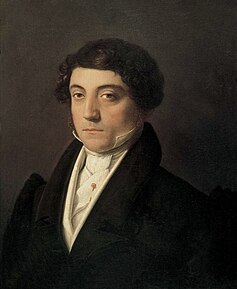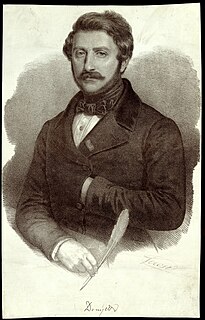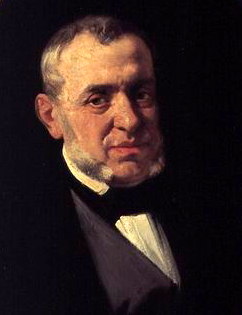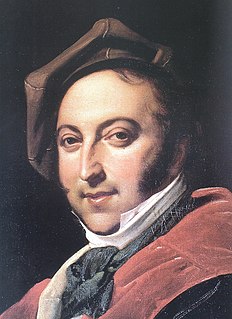 W
WAlessandro nelle Indie is an opera seria in two acts by Giovanni Pacini to a libretto by Andrea Leone Tottola and Giovanni Schmidt, based on Alessandro nell'Indie by Pietro Metastasio. It was premiered at the Teatro di San Carlo in Naples on 29 September 1824, and had a total of 38 performances in its first season.
 W
WAlfredo il grande is a melodramma serio or serious opera in two acts by Gaetano Donizetti. Andrea Leone Tottola wrote the Italian libretto, which may have been derived from Johann Simon Mayr's 1818 opera of the same name. The opera tells the story of the Anglo-Saxon king Alfred the Great.
 W
WAlzira is an opera in a prologue and two acts by Giuseppe Verdi to an Italian libretto by Salvatore Cammarano, based on the 1736 play Alzire, ou les Américains by Voltaire.
 W
WArmida is an opera in three acts by Italian composer Gioachino Rossini to an Italian libretto by Giovanni Schmidt, based on scenes from Gerusalemme liberata by Torquato Tasso.
 W
WArmida Abbandonata is an opera in three acts by the Italian composer Niccolò Jommelli. The libretto, by Francesco Saverio De Rogatis, is based on the epic poem Jerusalem Delivered by Torquato Tasso. The opera was first performed at the Teatro San Carlo, Naples, on 30 May 1770. The young Wolfgang Amadeus Mozart was in the audience. He described the work as "beautiful but too serious and old-fashioned for the theatre". Nevertheless, despite a lukewarm reception at its premiere, Armida abbandonata was widely performed throughout Italy in the following years.
 W
WArtaserse is an opera in three acts by the Czech composer Josef Mysliveček, set to a popular libretto by Metastasio that was originally performed in 1730. It was customary to alter the Metastasian text considerably for operas in the 1770s, but this one mainly adheres to the original Metastasian text, albeit with the placement of some scenes re-arranged and some scenes omitted. All of Mysliveček's operas are of the serious type in Italian referred to as opera seria.
 W
WL'assedio di Calais is an 1836 melodramma lirico, or opera, in three acts by Gaetano Donizetti, his 49th opera. Salvatore Cammarano wrote the Italian libretto, which has been described as "...a remarkable libretto, the closest Cammarano ever got to real poetry, particularly in his description of the embattled city and the heartfelt pride of its citizens". It was based on Luigi Marchionni's play L'assedio di Calais, which had been presented in Naples around 1825, and secondarily on Luigi Henry's ballet L'assedio di Calais, which had been performed in Naples in 1828 and revived in 1835.
 W
WIl Bellerofonte is an 18th-century Italian opera in three acts by the Czech composer Josef Mysliveček. It conforms to the serious type that was typically set in the distant past. The libretto, based on the Greek legend of Bellerophon, was written by Giuseppe Bonecchi. The work was dedicated to King Ferdinand I of the Two Sicilies and was first performed at the Teatro San Carlo in Naples on 20 January 1767, the birthday of his father, King Charles III of Spain. The cast featured two stellar singers of the time, Caterina Gabrielli and Anton Raaff, in the leading roles. The opera was only the composer's second one, and the first that permitted him the opportunity to write music for first-rate vocal artists. The production was highly successful, indeed responsible for a meteoric rise in his reputation as an operatic composer. From the time of the premiere of Bellerofonte until his death in 1781, Mysliveček succeeded in having more new opere serie brought into production than any other composer in Europe. During the same time span, he also had more new operas staged at the Teatro San Carlo in Naples than any other composer.
 W
WBianca e Fernando is an opera in two acts by Vincenzo Bellini.
 W
WLa Calliroe is an opera in three acts by Josef Mysliveček set to a libretto by Matteo Verazi that is based on Greek legends about the Oceanid Callirrhoe. This opera belong to the serious type in Italian language referred to as opera seria. Vocal pieces from the opera composed for the singer Luigi Marchesi in the role of Tarsile were widely copied in eighteenth-century collections of operatic arias.
 W
WIl castello di Kenilworth is a melodramma serio or tragic opera in three acts by Gaetano Donizetti. Andrea Leone Tottola wrote the Italian libretto after Victor Hugo's play Amy Robsart (1828) and Eugène Scribe's play Leicester, both of which following from Sir Walter Scott's novel Kenilworth (1821). Daniel Auber composed another opera on the same subject, Leicester, ou Le chateau de Kenilworth in 1823.
 W
WCaterina Cornaro ossia La Regina di Cipro is a tragedia lirica, or opera, in a prologue and two acts by Gaetano Donizetti. Giacomo Sacchero wrote the Italian libretto after Jules-Henri Vernoy de Saint-Georges' libretto for Halévy's La reine de Chypre (1841). It is based on the life of Caterina Cornaro, Queen of Cyprus from 1474 to 1489. It premiered at the Teatro San Carlo, Naples on 12 January 1844.
 W
WDemetrio is an eighteenth-century Italian opera in 3 acts by the Czech composer Josef Mysliveček. It was the composer's second setting of a libretto by the Italian poet Metastasio that was first performed in 1731, one of the most popular of the Metastasian librettos in Mysliveček's day. For a performance in the 1770s, it would only be expected that a libretto of such age would be abbreviated and altered to suit contemporary operatic taste. The cuts and changes in the text made for the 1779 performance of Mysliveček's opera are not attributable. All of Mysliveček's operas are of the serious type in Italian language referred to as opera seria.
 W
WDemofoonte is an opera in three acts by the Czech composer Josef Mysliveček. It was the composer's second setting of this popular libretto by Metastasio first produced in 1733. It was typical for subsequent setting of Metastasian dramas to incorporate significant alterations, and this setting retains the augmentation of the role of Timante that is found in the composer's first setting of this text. All of Mysliveček's operas are of the serious type in Italian referred to as opera seria.
 W
WIl diluvio universale is an azione tragico-sacra, or opera, by Gaetano Donizetti. The Italian libretto was written by Domenico Gilardoni after Lord Byron's Heaven and Earth and Francesco Ringhieri's tragedy Il diluvio (1788).
 W
WLa donna del lago is an opera composed by Gioachino Rossini with a libretto by Andrea Leone Tottola based on the French translation of The Lady of the Lake, a narrative poem written in 1810 by Sir Walter Scott, whose work continued to popularize the image of the romantic highlands. Scott's basic story has been noted as coming from "the hint of an incident stemming from the frequent custom of James V, the King of Scotland, of walking through the kingdom in disguise".
 W
WElena da Feltre is an opera in three acts by 19th-century Italian composer Saverio Mercadante from a libretto by Salvatore Cammarano, well known as librettist of Donizetti's Lucia di Lammermoor and Verdi's Il trovatore. The premiere took place at the Teatro San Carlo in Naples on 1 January 1839 as part of the Carnival Season. While not successful at the time, the opera was revived at La Scala in 1843 with twenty performances.
 W
WElisabetta, regina d'Inghilterra is a dramma per musica or opera in two acts by Gioachino Rossini to a libretto by Giovanni Schmidt, from the play Il paggio di Leicester by Carlo Federici, which itself "was derived from a novel The Recess (1785) by Sophia Lee."
 W
WElvida is a melodramma or opera in one act by Gaetano Donizetti. Giovanni Schmidt wrote the Italian libretto. The opera was written as a pièce d'occasion for the birthday of Queen Maria of the Two Sicilies. The choice of subject matter was no doubt intended as an elegant acknowledgement of the Queen's Spanish ancestry. Donizetti received little financial reward for the work and, as a result, put the minimum of effort into its composition.
 W
WErmione (1819) is a tragic opera in two acts by Gioachino Rossini to an Italian libretto by Andrea Leone Tottola, based on the play Andromaque by Jean Racine.
 W
WL'esule di Roma, ossia Il proscritto is a melodramma eroico, or heroic opera, in two acts by Gaetano Donizetti. Domenico Gilardoni wrote the Italian libretto after Luigi Marchionni's Il proscritto romano, in its turn based on Louis-Charles Caigniez and Debotière's Androclès ou Le lion reconnaissant. It premiered on 1 January 1828 at the Teatro San Carlo, Naples.
 W
WEzio is an eighteenth-century Italian opera in 3 acts by the Czech composer Josef Mysliveček. It was the composer's first setting of a libretto by the Italian poet Metastasio that was first performed with music by Pietro Auletta in 1728, one of the most popular of the Metastasian librettos in Mysliveček's day. The story is based on incidents from the lives of the 5th-century Roman emperor Valentinian III and his general Aetius. For a performance in the 1770s, it would only be expected that a libretto of such age would be abbreviated and altered to suit contemporary operatic taste. The cuts and changes in the text made for the 1775 performance of Mysliveček's opera are not attributable. All of Mysliveček's operas are of the serious type in Italian language referred to as opera seria.
 W
WFarnace is an 18th-century Italian opera in 3 acts by the Czech composer Josef Mysliveček. It was composed to a libretto by the Italian poet Antonio Maria Lucchini that is best known from a setting by Antonio Vivaldi first produced at the Teatro Sant'Angelo in Venice for the carnival operatic season of 1727. For a performance in the 1760s, it would only be expected that a libretto of such age would be abbreviated and altered to suit contemporary operatic taste; this libretto was unusually old, even older than all but one of the librettos by Metastasio that continued by be set in the 1760s. The cuts and changes in the text made for the 1767 performance of Mysliveček's opera are not attributable. Indeed, they are quite extensive; not a single one of Lucchini's original aria texts was re-set by Mysliveček. However, it is the same cut libretto of Farnace, with small variants, used by the Neapolitan Davide Perez in his opera for the Regio Teatro of Turin in the 1751 Carnival, and repeated in Rome at the Torre Argentina Theater the following year, and in Messina and Naples in 1753 and again in 1757.
 W
WFausta is a melodramma, or opera seria, in two acts by Gaetano Donizetti. The Italian libretto was partly written by Domenico Gilardoni, who died while doing so: the remainder was written by Donizetti. The literary source of the opera's libretto is Crispo, a tragedy improvised by Tommaso Sgricci on 3 November 1827.
 W
WFrancesca di Foix is a melodramma giocoso in one act by Gaetano Donizetti with a libretto by Domenico Gilardoni based on one by Jean-Nicolas Bouilly and Emmanuel Mercier-Dupaty for Henri Montan Berton's 3-act opéra-comique Françoise de Foix, inspired by the life of Françoise de Foix.
 W
WGabriella di Vergy is an opera seria in two acts by Gaetano Donizetti written in 1826 and revised in 1838, from a libretto by Andrea Leone Tottola, which was based on the tragedy Gabrielle de Vergy (1777) by Dormont De Belloy. Prior to that, the play was itself inspired by two French medieval legends, Le châtelain de Coucy et la dame de Fayel and Le Roman de la chastelaine de Vergy.
 W
WGloria is a tragic opera in three acts by Francesco Cilea with an Italian libretto by Arturo Colautti. A variation on the Romeo and Juliet story and set in 14th century Siena, the libretto is based on Victorien Sardou's 1874 play La Haine (Hatred). The opera premiered on 15 April 1907 at La Scala conducted by Arturo Toscanini with Solomiya Krushelnytska in the title role. Gloria was a failure at its premiere when it was withdrawn after two performances and fared little better in the 1932 revised version, although there have been two late 20th century revivals. It proved to be Cilea's last staged opera. In the 43 years following the premiere of Gloria he worked on two or three further operas which were never performed and continued to compose chamber and orchestral music.
 W
WImelda de' Lambertazzi is a melodramma tragico or tragic opera in two acts by Gaetano Donizetti from a libretto by Andrea Leone Tottola, based on the tragedy Imelda by Gabriele Sperduti. It received its first performance on 5 September 1830 at the Teatro San Carlo, Naples.
 W
WLucia di Lammermoor is a dramma tragico in three acts by Gaetano Donizetti. Salvadore Cammarano wrote the Italian-language libretto loosely based upon Sir Walter Scott's 1819 historical novel The Bride of Lammermoor.
 W
WLuisa Miller is an opera in three acts by Giuseppe Verdi to an Italian libretto by Salvadore Cammarano, based on the play Kabale und Liebe by the German dramatist Friedrich von Schiller.
 W
WMaometto II is an 1820 opera in two acts by Gioachino Rossini to an Italian libretto by Cesare della Valle. Set in the 1470s during a time of war between the Turks and Venetians, the work was commissioned by the Teatro di San Carlo in Naples. Della Valle based his libretto on his earlier play Anna Erizo. The name of the title character, Maometto II, refers to the real-life Ottoman Sultan and conqueror of Constantinople Mehmed II, who lived from 1432 to 1481.
 W
WMosè in Egitto is a three-act opera written by Gioachino Rossini to an Italian libretto by Andrea Leone Tottola, which was based on a 1760 play by Francesco Ringhieri, L'Osiride. It premièred on 5 March 1818 at the recently reconstructed Teatro San Carlo in Naples, Italy.
 W
WL'Olimpiade is an 18th-century Italian opera in 3 acts by the Czech composer Josef Mysliveček. It was composed to a libretto by the Italian poet Metastasio that was first performed in 1733. For a performance in the 1770s, it would only be expected that a libretto of such age would be abbreviated and altered to suit contemporary operatic taste; some of the original aria texts would be omitted or substituted, and the remaining aria texts would be set more expansively. In this case, only 14 of the original 18 aria texts of Metastasio were newly set to music. The cuts and changes in the text made for the 1778 performance of Mysliveček's opera are not attributable.
 W
WOrazi e Curiazi is an opera by the Italian composer Saverio Mercadante. It takes the form of a tragedia lirica in three acts. The libretto, by Salvadore Cammarano, is based on the Roman legend of the fight between Horatii and Curiatii. It was first performed at the Teatro San Carlo, Naples, on 10 November 1846.
 W
WRicciardo e Zoraide is an opera in two acts by Gioachino Rossini to an Italian libretto by Francesco Berio di Salsa. The text is based on cantos XIV and XV of Il Ricciardetto, an epic poem by Niccolò Forteguerri.
 W
WRoberto Devereux is a tragedia lirica, or tragic opera, by Gaetano Donizetti. Salvadore Cammarano wrote the Italian libretto after François Ancelot's tragedy Elisabeth d'Angleterre (1829), and based as well on the Historie secrete des amours d'Elisabeth et du comte d'Essex (1787) by Jacques Lescéne des Maisons, although Devereux was the subject of at least two other French plays: Le Comte d'Essex by Thomas Corneille and Le Comte d'Essex by Gauthier de Costes, seigneur de la Calprenède.
 W
WRomolo ed Ersilia is an 18th-century Italian opera in 3 acts by the Czech composer Josef Mysliveček composed to a libretto by the Italian poet Metastasio first produced in Innsbruck in 1765 with music by Johann Adolf Hasse. The drama was one of Metastasio's last, shortest, and least popular. Mysliveček's setting of 1773 was the only other one known to have been produced during the remainder of the eighteenth century. It includes significant alterations, in particular the introduction of new arias that augment the importance of certain characters and the re-ordering of existing arias. The alterations are not attributable. This opera belong to the serious type in Italian language referred to as opera seria. In Mysliveček's day, the opening aria, "Questa è la bella face," the duet that concludes the first act, and the quartet that concludes the second act were famed for their brilliance.
 W
WSaffo is an opera in three acts by Giovanni Pacini set to a libretto by Salvadore Cammarano, which was based on a play by Franz Grillparzer, after the legend of the ancient Greek poet Sappho.
 W
WSancia di Castiglia is an Italian opera seria in two acts by Gaetano Donizetti to a libretto by Pietro Salatino. It was first performed at the Teatro San Carlo in Naples on 4 November 1832, conducted by Nicola Festa.
 W
WL'ultimo giorno di Pompei is an opera in two acts composed by Giovanni Pacini to an Italian libretto by Andrea Leone Tottola. It premiered to great success at the Teatro San Carlo in Naples on 19 November 1825 followed by productions in the major opera houses of Italy, Austria, France, and Portugal. When Pacini's popularity declined in the mid-19th century, the opera was all but forgotten until 1996 when it received its first performance in modern times at the Festival della Valle d'Itria in Martina Franca. L'ultimo giorno di Pompei influenced either directly or indirectly several other 19th-century works, most notably Karl Bryullov's 1833 painting, The Last Day of Pompeii.
 W
WLa vestale is an opera by Italian composer Saverio Mercadante. It takes the form of a tragedia lirica in three acts. The libretto, by Salvadore Cammarano, was influenced by Victor-Joseph Étienne de Jouy's libretto for Spontini's more famous 1807 opera of the same name.
 W
WVirginia is an opera, a tragedia lirica, in three acts by composer Saverio Mercadante. The Italian libretto by Salvadore Cammarano is based on Vittorio Alfieri's tragedy of the same name. Alfieri's play was in turn taken from a story in Livy's Ab Urbe condita. Although initially written for performance in 1850 at the Teatro di San Carlo in Naples, the subject matter of Mercadante's opera was objected to by the Bourbon government censors and performance was banned outright. That decision was widely ridiculed, not just in Italy, but throughout Europe. After the fall of the Kingdom of the Two Sicilies in 1861, the ban on the opera no longer existed.
 W
WZelmira is an opera in two acts by Gioachino Rossini to a libretto by Andrea Leone Tottola. Based on the French play, Zelmire by de Belloy, it was the last of the composer's Neapolitan operas. Stendhal called its music Teutonic, comparing it with La clemenza di Tito but remarking: "...while Mozart would probably, had he lived, have grown completely Italian, Rossini may well, by the end of his career, have become more German than Beethoven himself!"